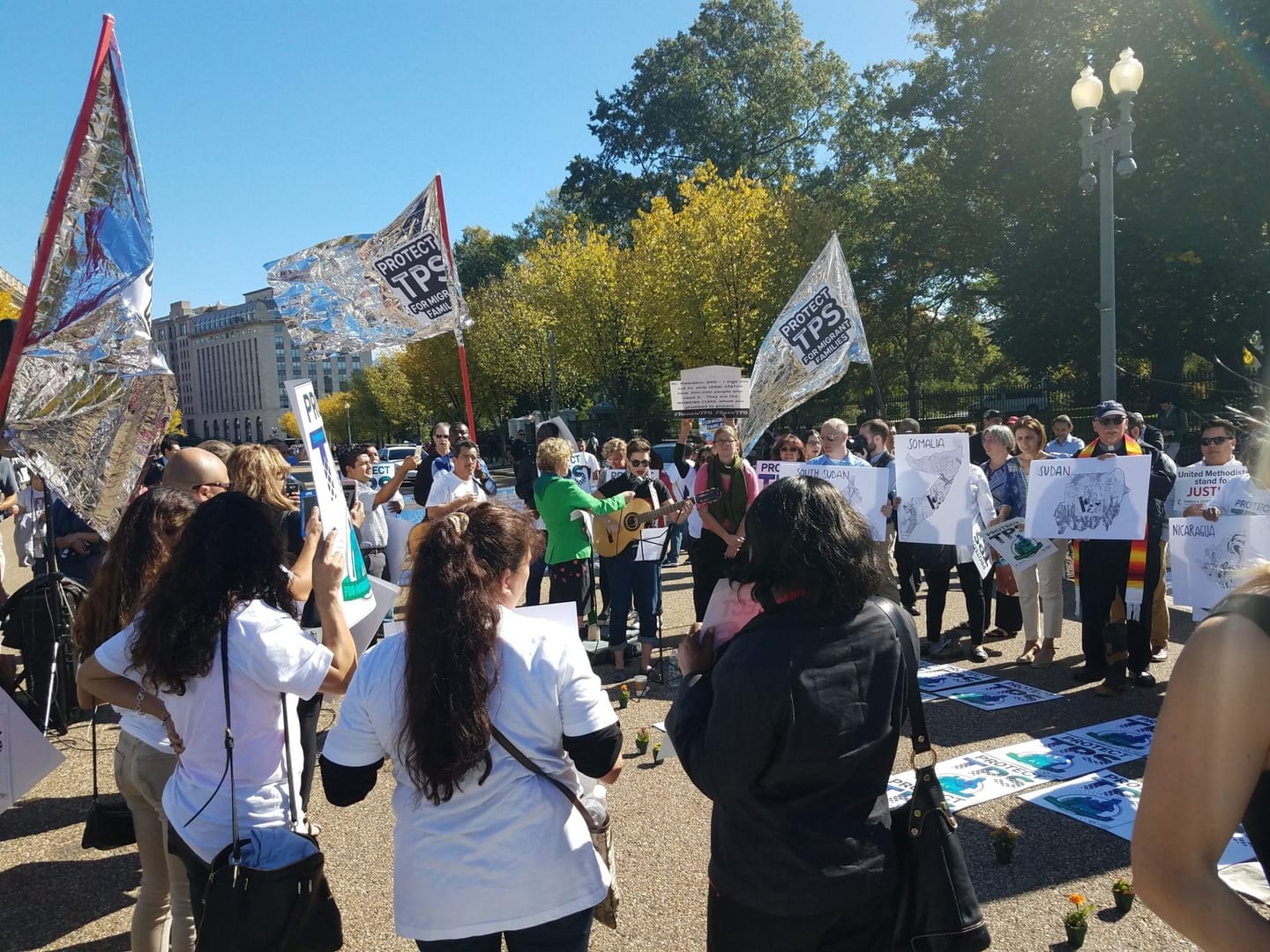NEW YORK – At age 53, Maria Victoria Reyes has spent the majority of her adult life in the United States. Since 2001, she has slept comfortably at night believing she was safe in this country after being approved for Temporary Protected Status, or TPS as it’s commonly known.
TPS was established by the United States Congress in 1990, and allows for individuals to reside and work in the U.S. if their home country is under threat from natural disaster, violence, or other extraordinary circumstances. To date, there are an estimated 320,000 individuals living in the U.S. with this status, and like Reyes, many have called the United States home for close to twenty years.
This fall, the Trump administration will have to decide whether to extend TPS designation for a number of countries, most notably El Salvador, Haiti, and Honduras, which make up the majority of protected individuals. While the deadlines for each country vary based on when TPS protection was established, next month is slated to be a critical window for administrative action.
Earlier this month, the United States Conference of Catholic Bishops (USCCB) released a report entitled Temporary Protected Status: A Vital Piece of the Central American Protection and Prosperity Puzzle, which includes findings from recent USCCB delegations to Honduras and El Salvador.
Following these visits, Bishop Joe S. Vásquez of Austin, Texas, chairman of the USCCB Committee on Migration, said “there is ample evidence to suggest that current TPS recipients from Honduras and El Salvador cannot return safely to their home country at this time.”
Reyes hails from a rural town in El Salvador, commonly known as “Canton.” She grew up very poor, trying to make ends meet by selling vegetables at local street markets. As a single-mother, she eventually left El Salvador to escape the pervasive violence in the country in hopes of providing a better future for her daughters.
Her remaining family in El Salvador has repeatedly warned her of the violence they face on a daily basis, and in an interview with Crux, she spoke of how she regularly prays for their protection. Now, however, she fears that she too will be forced to return to the country if the TPS program is not renewed.
Last year, a gas explosion in Reyes’s apartment in Silver Spring, Maryland, left her with a serious spinal injury, which requires ongoing medical attention. Reyes told Crux that she fears that if El Salvador’s TPS designation is revoked, she will be unable to acquire the healthcare services she needs to adequately address her injury.
If TPS status is not extended, recipients of the program will be mandated to leave the United States immediately. While the Department of Homeland Security may choose to provide a six-month period for arrangements, it is not mandatory, adding a heightened sense of uncertainty for individuals like Reyes.
It’s for this reason the U.S. bishops are pushing for an immediate extension of the program, but also for a permanent fix to the problem.
“There are thousands of people like Maria who will face heart-breaking outcomes and family separation and hardship if TPS is not extended for Honduras and El Salvador,” said Ashley Feasley, director of policy for the USCCB’s Office of Migration Policy and Public Affairs.
“We must urge the administration to recognize conditions on the ground in these countries and extend TPS,” Feasley told Crux. “We must also look to work with Congress for a more permanent solution for those TPS recipients who have been living, working, and contributing in the U.S. for many years.”
On Tuesday, several hundred individuals gathered in front of the White House to hold an interfaith prayer vigil in support of TPS. The vigil was organized by the American Friends Service Committee, Church World Service, and Disciples Refugee and Immigration Ministries, but a number of Catholic clergy also participated in the event.

Father Jacek Orzechowski, who works with Catholic Charities for the Archdiocese of Washington, told Crux “it’s important for Catholic clergy to speak on this issue because it expresses the Church’s mission and gospel values, particularly supporting the vulnerable communities that so far have not been protected and shielded from deportation.
“We as a Catholic Church are called to protect the integrity of the family. I see this campaign as an extension of the respect for life and protecting the most vulnerable among us,” said Orzechowski.
“As a priest from Poland, I have been very much influenced by Pope John Paul II’s call to build a civilization of love and his call to protect life and the vulnerable,” he said.
“This isn’t just Pope Francis and our bishops, it goes back to John Paul II and even Jesus,” said Orzechowski. “It’s intrinsic to who we are as a Church.”
Reyes told Crux that while she grew up Catholic, she had stopped attending Mass due to work obligations, but since the explosion in her apartment, she has returned to the faith and is a parishioner at St. Camillus Church in Silver Spring.
She currently resides with her daughter and her two granddaughters, ages seven and three, and told Crux that the thought of leaving them behind and returning to El Salvador is “heartbreaking.”
“This is a family issue,” Feasley told Crux. “There are approximately 270,000 U.S. citizen kids who have TPS recipient parents. What will happen to these kids if TPS is not extended?” she asked.
“We must protect these families,” she urged.














